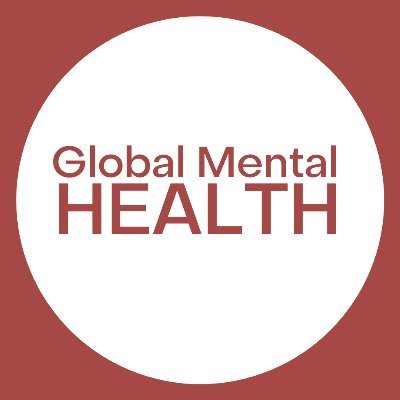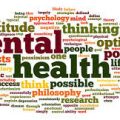Mental illness is a worldwide public health concern. Globally there is a high prevalence of mental illness and poor mental wellbeing among people especially the young. Mental health is also the most neglected disease in global health, which is concerning because mental and behavioral disorders are among the leading causes of disability worldwide.
The burden of mental disorders continues to grow with significant impacts on health and major social, human rights and economic consequences in all countries of the world.
The Burden of Global Mental Disorders
Depression
Depression is a common mental disorder and one of the main causes of disability worldwide. Globally, an estimated 264 million people are affected by depression. More women are affected than men.
Depression is characterized by sadness, loss of interest or pleasure, feelings of guilt or low self-worth, disturbed sleep or appetite, tiredness, and poor concentration. People with depression may also have multiple physical complaints with no apparent physical cause. Depression can be long-lasting or recurrent, substantially impairing people’s ability to function at work or school and to cope with daily life. At its most severe, depression can lead to suicide.
Prevention program have been shown to reduce depression, both for children (e.g. through protection and psychological support following physical and sexual abuse) and adults (e.g. through psychosocial assistance after disasters and conflicts).
There are also effective treatments. Mild to moderate depression can be effectively treated with talking therapies, such as cognitive behavior therapy or psychotherapy. Antidepressants can be an effective form of treatment for moderate to severe depression but are not the first line of treatment for cases of mild depression. They should not be used for treating depression in children and are not the first line of treatment in adolescents, among whom they should be used with caution.
Management of depression should include psychosocial aspects, including identifying stress factors, such as financial problems, difficulties at work or physical or mental abuse, and sources of support, such as family members and friends. The maintenance or reactivation of social networks and social activities is important.
Bipolar disorder
This disorder affects about 45 million people worldwide1. It typically consists of both manic and depressive episodes separated by periods of normal mood. Manic episodes involve elevated or irritable mood, over-activity, rapid speech, inflated self-esteem and a decreased need for sleep. People who have manic attacks but do not experience depressive episodes are also classified as having bipolar disorder.
Effective treatments are available for the treatment of the acute phase of bipolar disorder and the prevention of relapse. These are medicines that stabilize mood. Psychosocial support is an important component of treatment.
Schizophrenia and other psychoses
Schizophrenia is a severe mental disorder, affecting 20 million people worldwide1. Psychoses, including schizophrenia, are characterized by distortions in thinking, perception, emotions, language, sense of self and behaviour. Common psychotic experiences include hallucinations (hearing, seeing or feeling things that are not there) and delusions (fixed false beliefs or suspicions that are firmly held even when there is evidence to the contrary). The disorder can make it difficult for people affected to work or study normally.
Stigma and discrimination can result in a lack of access to health and social services. Furthermore, people with psychosis are at high risk of exposure to human rights violations, such as long-term confinement in institutions.
Schizophrenia typically begins in late adolescence or early adulthood. Treatment with medicines and psychosocial support is effective. With appropriate treatment and social support, affected people can lead a productive life and be integrated in society. Facilitation of assisted living, supported housing and supported employment can act as a base from which people with severe mental disorders, including schizophrenia, can achieve numerous recovery goals as they often face difficulty in obtaining or retaining a place to live and normal employment.
Dementia
Worldwide, approximately 50 million people have dementia. Dementia is usually of a chronic or progressive nature in which there is deterioration in cognitive function (i.e. the ability to process thought) beyond what might be expected from normal ageing. It affects memory, thinking, orientation, comprehension, calculation, learning capacity, language, and judgement. The impairment in cognitive function is commonly accompanied, and occasionally preceded, by deterioration in emotional control, social behaviour, or motivation.
Dementia is caused by a variety of diseases and injuries that affect the brain, such as Alzheimer’s disease or stroke. Though there is no treatment currently available to cure dementia or to alter its progressive course, many treatments are in various stages of clinical trials. Much can be done, however, to support and improve the lives of people with dementia and their careers and families.
Developmental disorders, including autism
Developmental disorder is an umbrella term covering intellectual disability and pervasive developmental disorders including autism. Developmental disorders usually have a childhood onset but tend to persist into adulthood, causing impairment or delay in functions related to the central nervous system maturation. They generally follow a steady course rather than the periods of remissions and relapses that characterize many mental disorders.
Intellectual disability is characterized by impairment of skills across multiple developmental areas such as cognitive functioning and adaptive behavior. Lower intelligence diminishes the ability to adapt to the daily demands of life.
Symptoms of pervasive developmental disorders, such as autism, include impaired social behaviour, communication and language, and a narrow range of interests and activities that are both unique to the individual and are carried out repetitively. Developmental disorders often originate in infancy or early childhood. People with these disorders occasionally display some degree of intellectual disability.
Family involvement in care of people with developmental disorders is very important. Knowing what causes affected people both distress and well-being is an important element of care, as is finding out what environments are most conducive to better learning. Structure to daily routines helps prevent unnecessary stress, with regular times for eating, playing, learning, being with others, and sleeping. Regular follow up by health services of both children and adults with developmental disorders, and their careers, needs to be in place. The community at large has a role to play in respecting the rights and needs of people with disabilities.
How is the World Responding
According to WHO data around 25% of countries have no mental health legislation. The magnitude of mental health burden is not matched by the size and effectiveness of the response it demands. Currently, more than 33% of countries allocate less than 1% of their total health budgets to mental health, with another 33% spending just 1% of their budgets on mental health. A limited range of medicines is sufficient to treat the majority of mental disorders. About 25% of countries, however, do not have the three most commonly prescribed drugs used to treat schizophrenia, depression and epilepsy at the primary health care level. There is only one psychiatrist per 100 000 people in over half the countries in the world, and 40% of countries have less than one hospital bed reserved for mental disorders per 10 000 people.
The poor often bear the greater burden of mental disorders, both in terms of the risk in having a mental disorder and the lack of access to treatment. Constant exposure to severely stressful events, dangerous living conditions, exploitation, and poor health in general all contribute to the greater vulnerability of the poor. The lack of access to affordable treatment makes the course of the illness more severe and debilitating, leading to a vicious circle of poverty and mental health disorders that is rarely broken.
There is a growing body of criticism of the global mental health movement, and has been widely criticized as a neo-colonial or “missionary” project and as primarily a front for pharmaceutical companies seeking new clients for psychiatric drugs. ALSO READ: How Can I Test My Mental Health?





